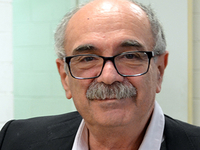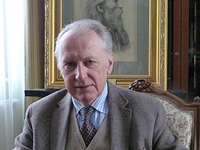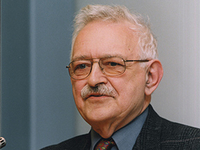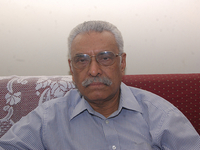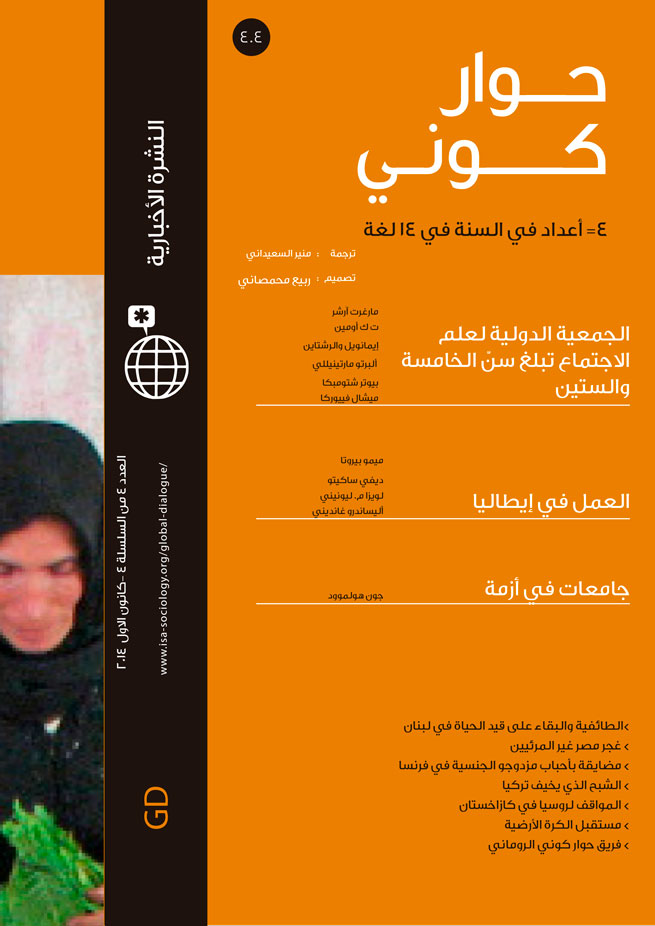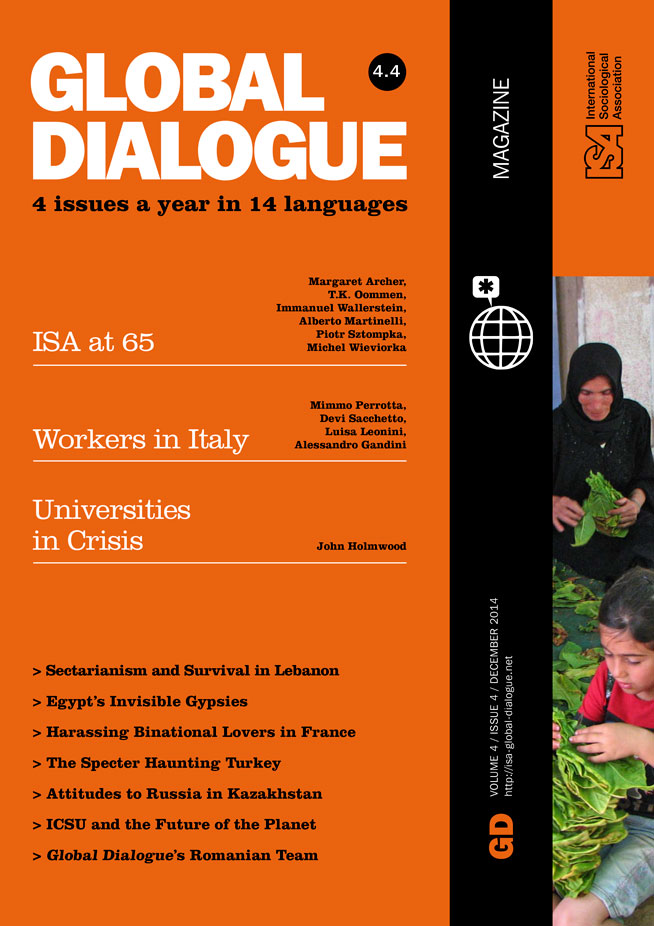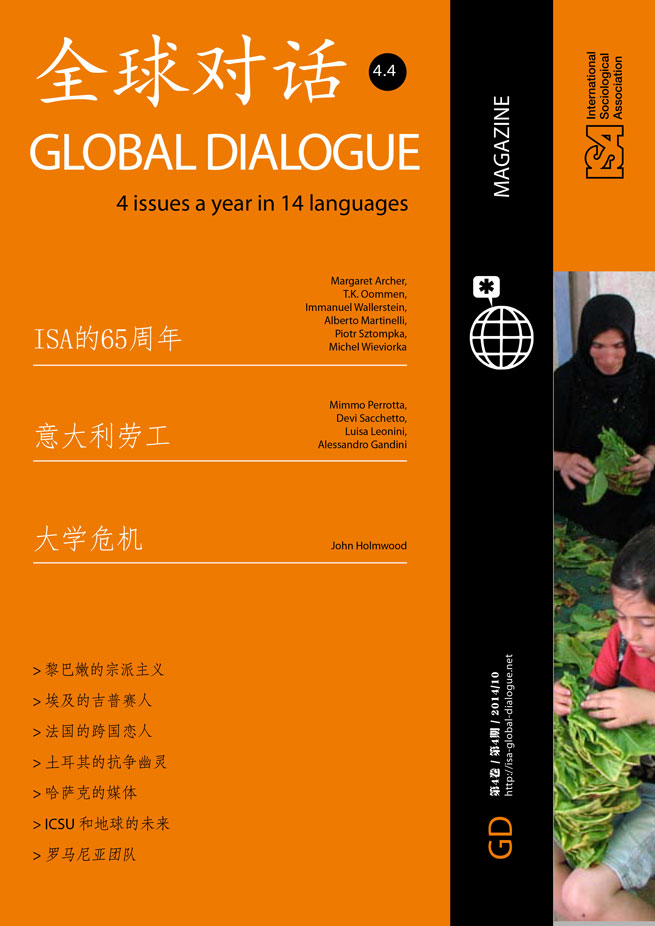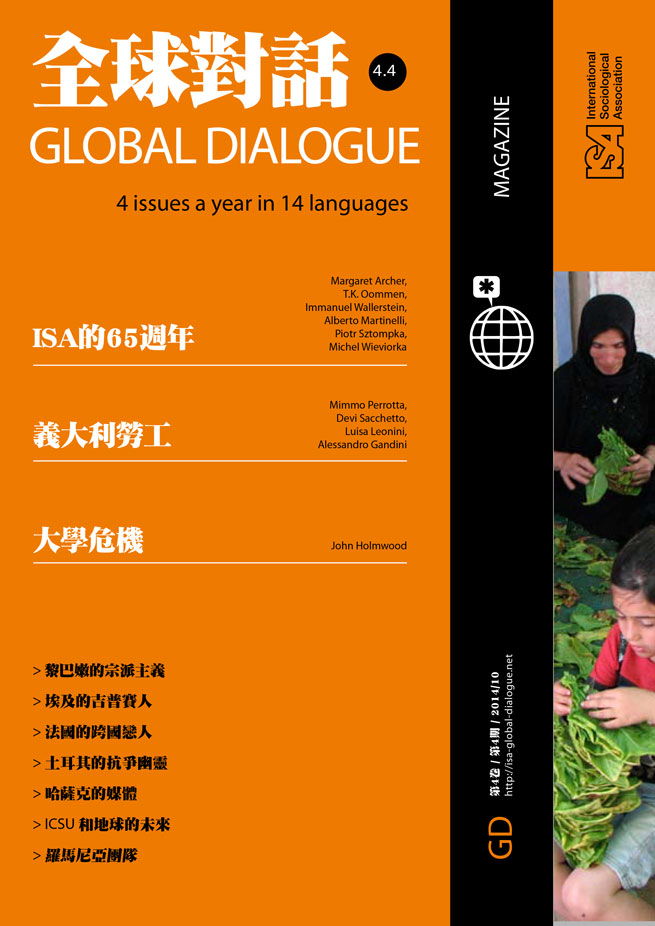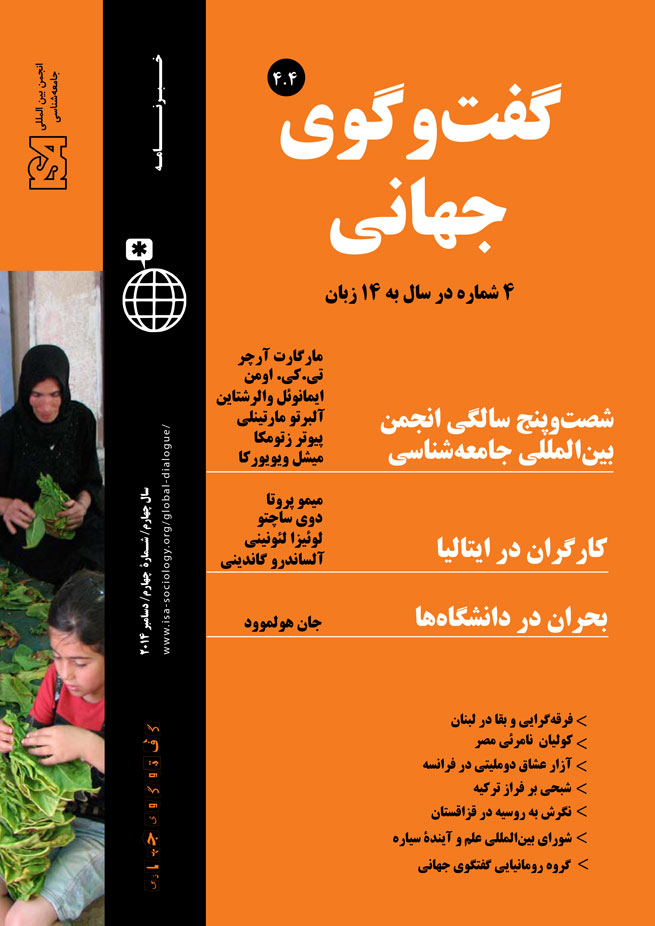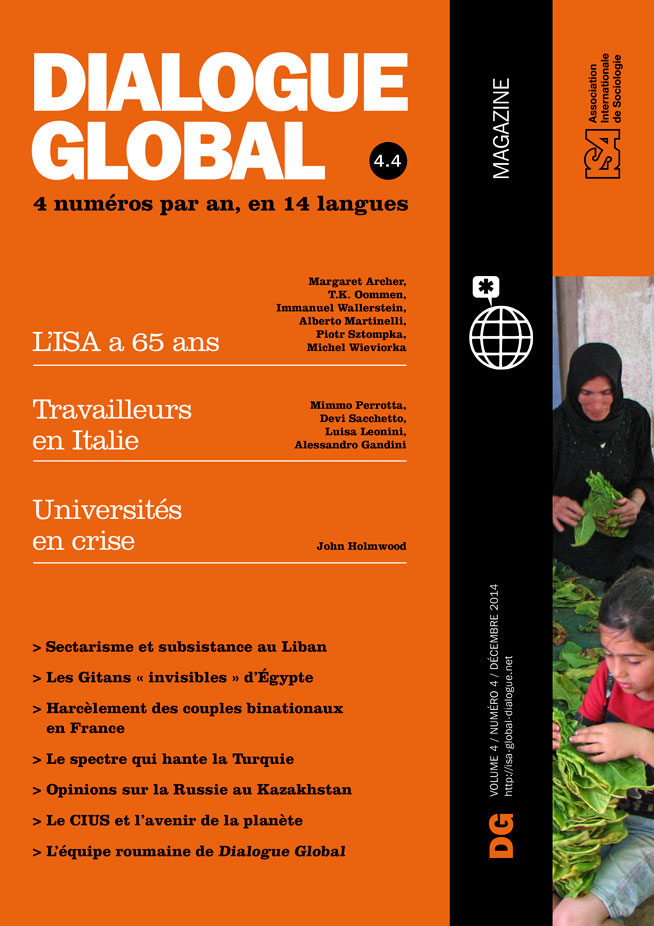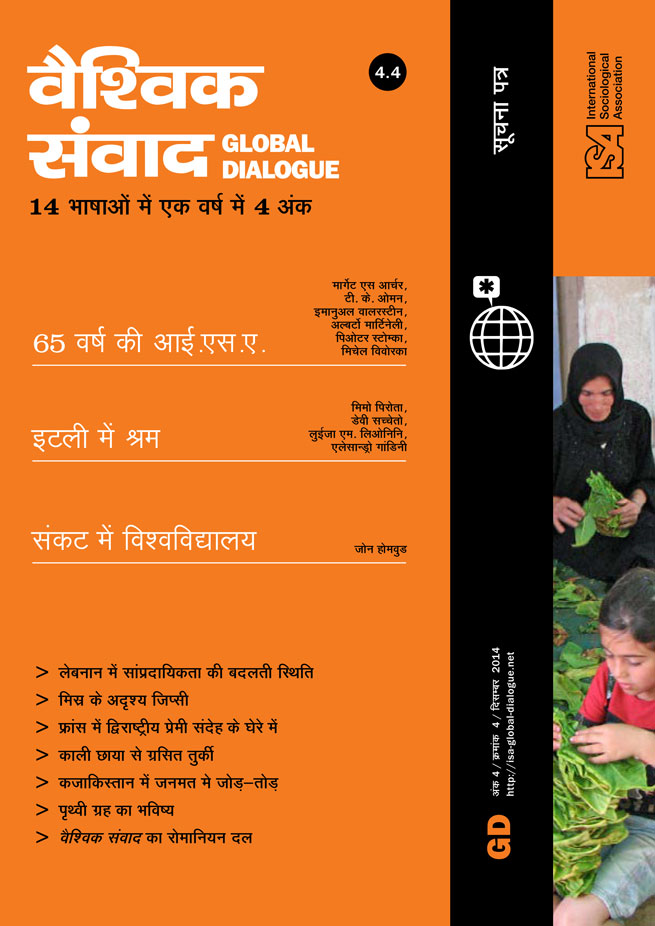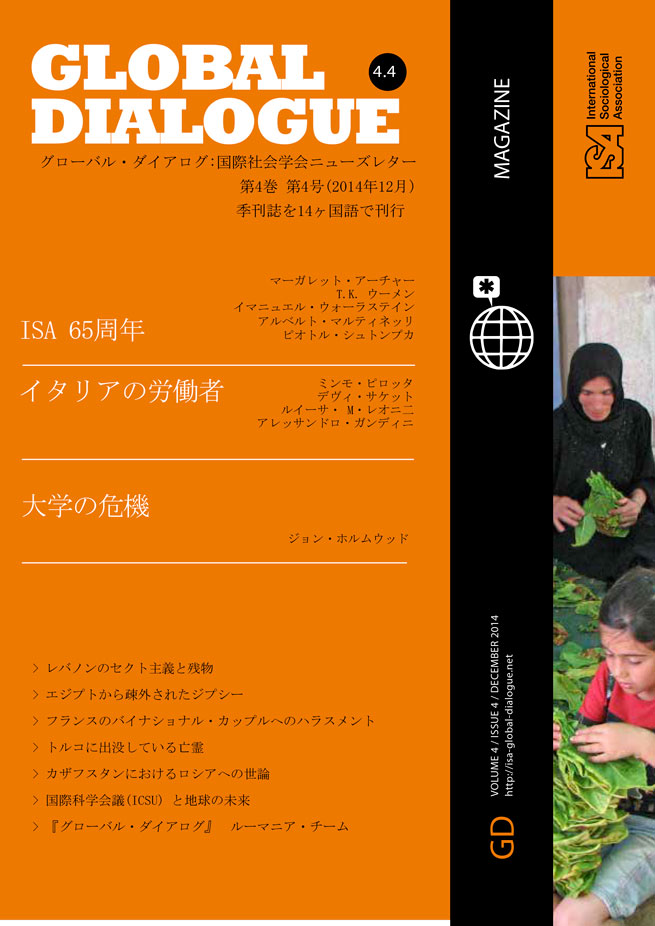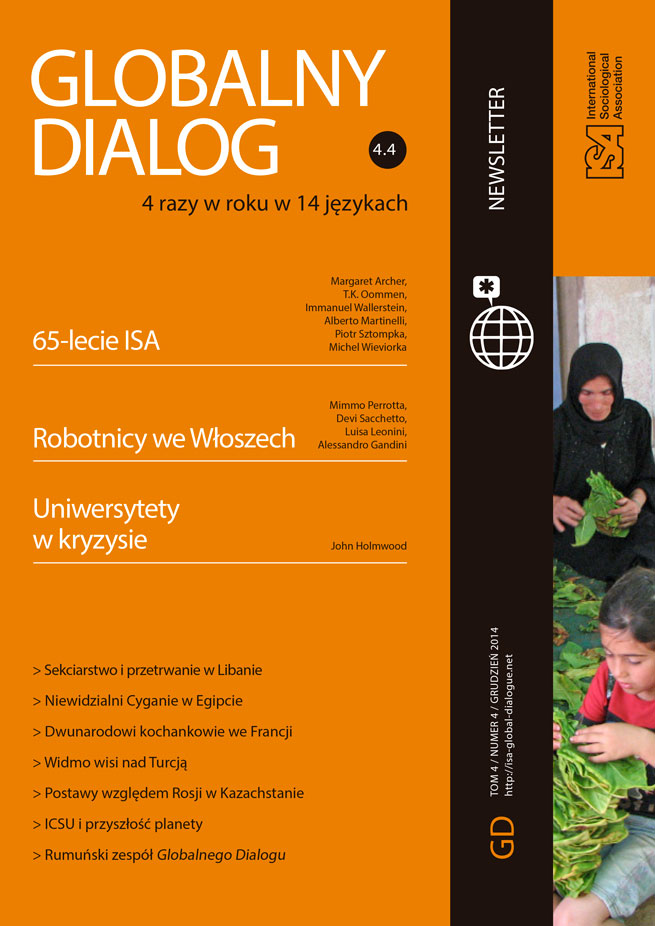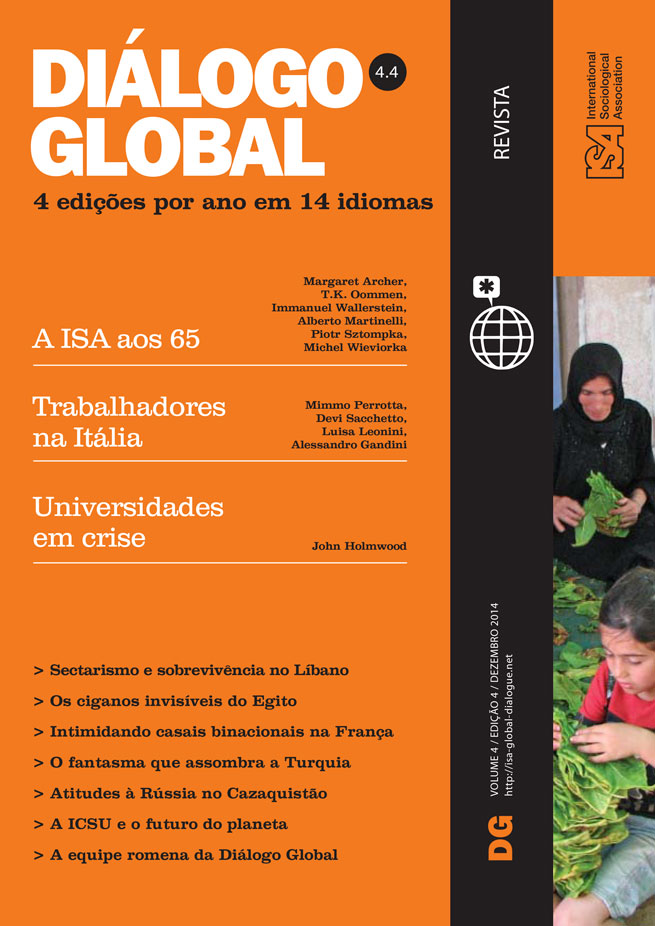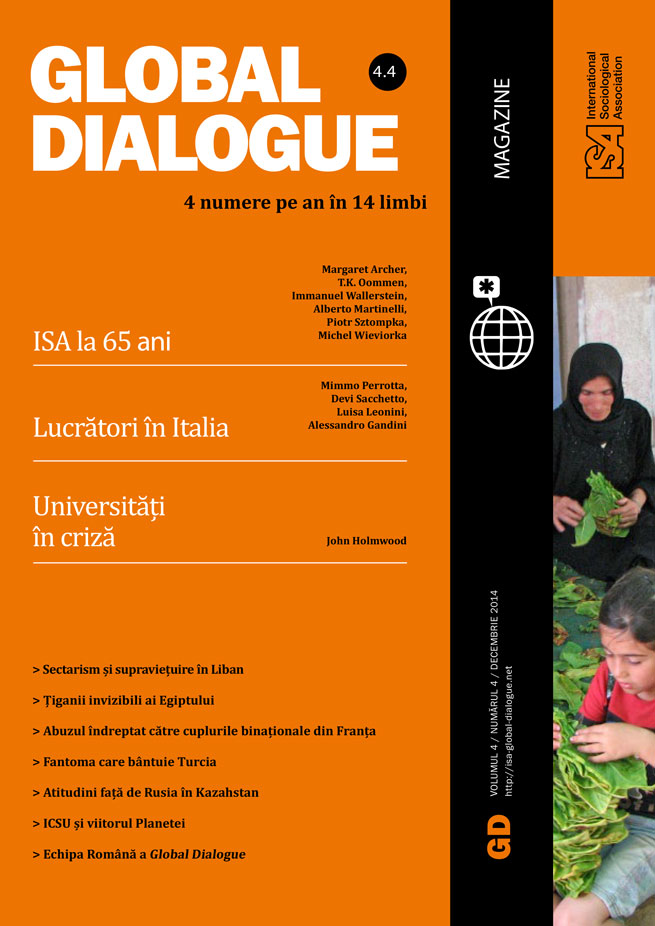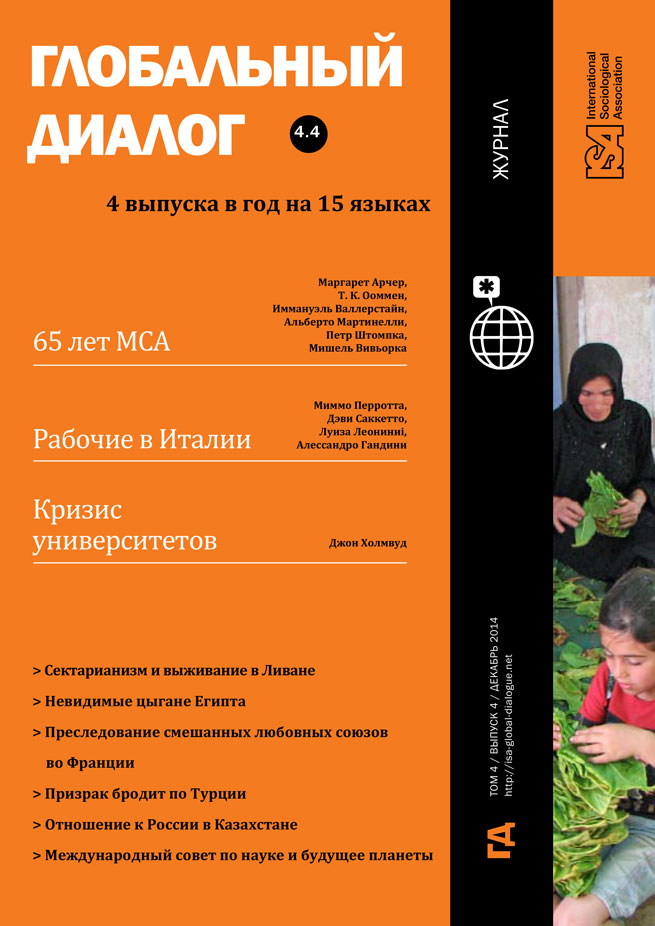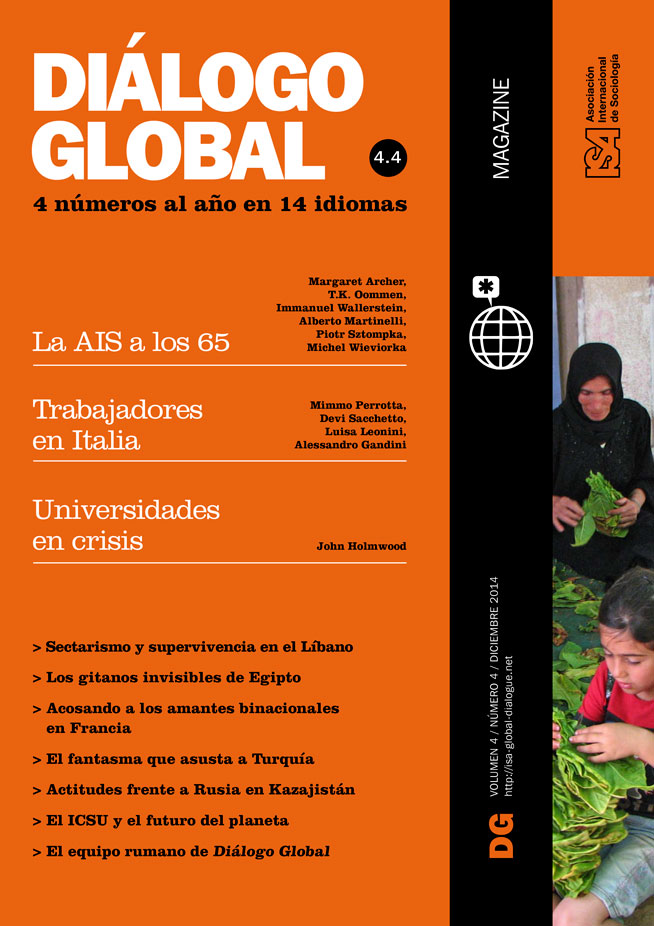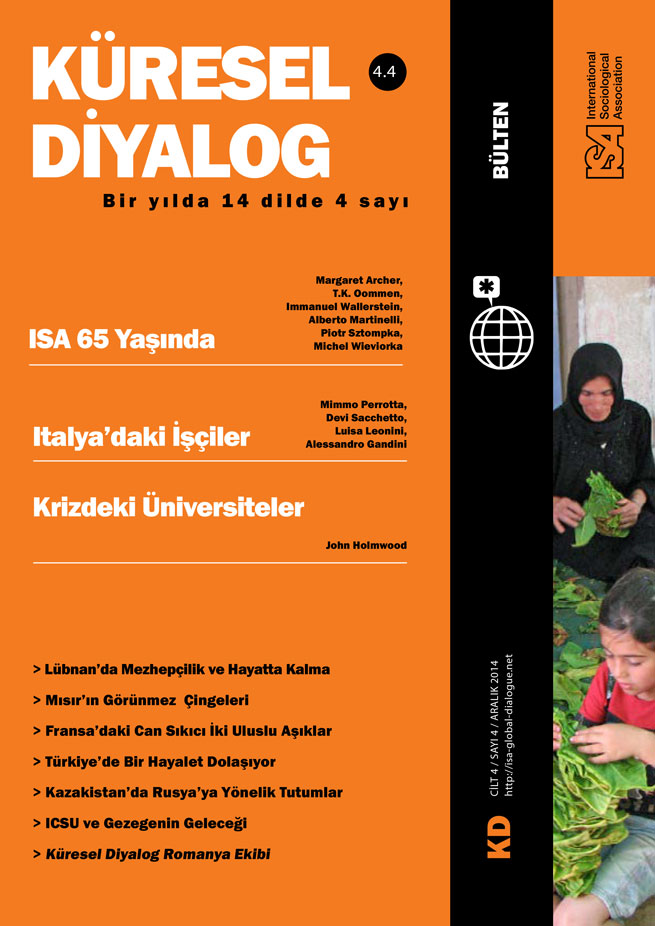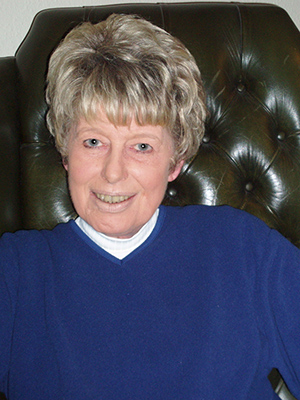There is no such thing as immaculate perception. From the beginning, my own vision came through UNESCO spectacles: the ISA was founded to help “knit together social science scholars of the world” to advance these disciplines. Given that its 65 years span the divide between “high” and “late” modernity – and crucially, what happens next – the ISA could have taken this as its brief. It did not. Instead, it was one more participant making its own history within those structural and cultural confines. In looking backwards, there seems to be a remarkably good fit between the common periodization of these years and phases of the ISA’s history; goodwill was never lacking but prescience was.
What restrained us from trying to take a higher intellectual ground – by globalizing before the world did, or becoming geographically inclusive before the world was? All I will draw upon are my own experiences, starting from the 1966 World Congress at Evian-les-Bains – which, ironically, took place six kilometers from the chalet where I am now drafting this text. Like the town itself, the Congress was small, almost intimate, and very Eurocentric. The American presence was strong, but the liveliest were East European émigrés. We had some fun spotting the KGB officer from the small official delegations, but no success in deflecting safe and studied presentations into risky dialogue.
Some responsibility for this lies with our equally studied exercise of linguistic hegemony. Most North Americans and, of course, most English, remained – as they still do – unabashed monolinguals. In part, too, the infrastructure of communication was also an obstacle – manual typewriters, no photocopiers, snail mail and insecure phone lines were inhibiting factors. To bring this home to those born after the end of the 60s, when I became Editor of Current Sociology (1973) a Bibliography for a Trend Report arrived in the parceled-up drawer of a filing cabinet, complete with its filing cards! I’ll pass over the joys of typing this out on an old Remington and inserting the accents in hand. Why did we think Trend Reports were useful, from 1952 when the Journal began? Because before the Internet, the only other resort for this basic information was Sociological Abstracts, thanks to the voluntary efforts of Leo Chall and his wife. That is the background to the period I call our own cold war.
Cold Warriors “united” by Empiricism
Certainly, the Philosophy of Social Science furthered empiricism and, whilst it is now seen as bankrupt, temporarily it formed a bond between West and East. Western countries were excited by the arrival of their first (room-sized) computer, the initial boost to Big Data. In Eastern Europe, detailed statistical studies provided a safe haven against political correctness. Moreover, statistics represented a form of Esperanto. In those Congresses of the 1970s, entering almost any session was to see yet another regression table projected from an overhead slide, inviting a quasi-mathematical discussion.
It was not that theory was dead. On the contrary, the star attraction at Uppsala (1978) was a scheduled debate between Parsons and Althusser – at least judging from the hundreds trudging to a distant aula through heavy rain. When the Chair finished announcing his regret that neither speaker could make it, up went the umbrellas and back we disconsolately went.
The ISA was not lacking in goodwill. We deliberately held Executive Committee meetings in Eastern Europe, smuggled out manuscripts from Bulgaria, visited Tbilisi, Ljubljana, Budapest and more to extend the network. Through repeated visits to Poland, some lifelong friendships were formed. There, too, in this period when national associations still dominated the ISA, we scratched the surface of the relationship between Polish members and the Party. Hosted at the lovely palace of Jabłonna, we were uneasily aware that feeding us had probably cost our colleagues a month of food coupons. The cook wanted to do better by us and promised zrazy zawijane on Thursday. All afternoon we smelt her preparations, but dinner was repeatedly delayed. Eventually, we saw a convoy of car headlights arriving from Warsaw and the poor cook had to tell us this was the Minister of Education’s party – and dinner was “off” for us. Many friendships lasted: in 1989, some had the joy of very unofficially driving to Gdansk – and being present in the shipyards when Solidarity broke the shackles.
The Mexican Wave and Wake-up Call
As for the rest of the world, the ISA responded well to persecuted individuals, but much less so towards oppressed collectivities. Being still Eurocentric and not greatly helped by our North American cousins, there were very few who were familiar with other continents. Of course there were notable exceptions: Tom Bottomore and India, Alain Touraine and his inexhaustible knowledge of Latin America. But it took the ISA World Congress of Sociology in Mexico City (1982) to demonstrate how poorly we served Latin America. We were flabbergasted by the UNAM’s (National Autonomous University of Mexico) size and the wave of students wanting to attend the Congress. Ad hoc arrangements to accommodate them left many rightly outraged: “How can you come to our country and not recognize our language and concerns?” Collectively we got the message. Cardoso was elected as President there, although it would be several years before Spanish became the ISA’s third official language.
By the time the next Congress (1986) met in New Delhi, Martin Albrow and I had already launched International Sociology as an explicit outreach activity. Daniel Bertaux masterminded a geographically and linguistically inclusive “Young Sociologists’ Competition,” involving fourteen different language panels and adjudicators – whose willingness to serve said something important about previous feelings of marginalization. Spanish at last became an official ISA language. Our Congress theme for 1990 was “Sociology for One World” and I devoted my Presidential Address to it. Most Executive Committee members felt we were on the way with our international agenda. But I failed to register a small black cloud that I now believe put the brakes on this trajectory: the growing importance of the Research Committees.
Twenty Years of Balkanization
Initially, the Research Committees’ specialization seemed a reasonable response to the growing number of professional sociologists worldwide and their variety of interests. As the RC’s influence swelled without countervailing agencies to offset fragmentation, two unintended consequences amplified. On the one hand, some Research Committees were commandeered by “sitting tenants,” representing a particular approach, effectively excluding others. On the other hand, RCs proliferated, but the absence of leading sociologists analyzing Late Modernity and its discontents was noticeable. In short, the ISA provided a shrinking platform for the discussion of “Where are we going?”
Increasingly, if “your” Research Committee became a fiefdom, the main alternative was to go and try another, because plenary sessions were ceasing to be a counterbalancing attraction. So I was very supportive of Michael Burawoy’s efforts to focus on central debates whilst simultaneously promoting Global Dialogue.
Imperatives for the Future
As academe’s bureaucratic regulation intensifies, new performance indicators, ranking of publishing outlets and emphasis on impact factors, all mean that early career colleagues adopt a premature defensive specialization – if they do not take cover by conducting obscure ethnographies. The pressure to publish too fast and to fill up a CV means they have less time to read a complete book, let alone the complete works of those they are attacking or even the giants on whose shoulders they climb. Meanwhile, where is the forum for sociological discussions of world issues: the decline of Europe, climate change, intensifying inequalities, the restructuring of financialized capitalism versus the digital promise of a cultural commons? Where is the arena for sociological disputes about conceptualizing the contemporary world, its neoliberalism or the mantra that “There is no Alternative”?
The new Executive Committee’s composition is very international; it could either foster global representativeness within Balkanization, or it could formulate a new international agenda addressing global issues, seeking to explain where this one world is heading. I once thought that the best role for an ex-President was to remain silent, having had our say. However, I have come to think that we should speak out. After all, we share the rare privilege of having nothing to lose.
Margaret S. Archer, University of Warwick, UK, and former ISA President, 1986-1990 <Margaret.Archer@warwick.ac.uk>
